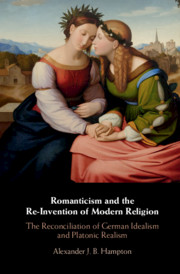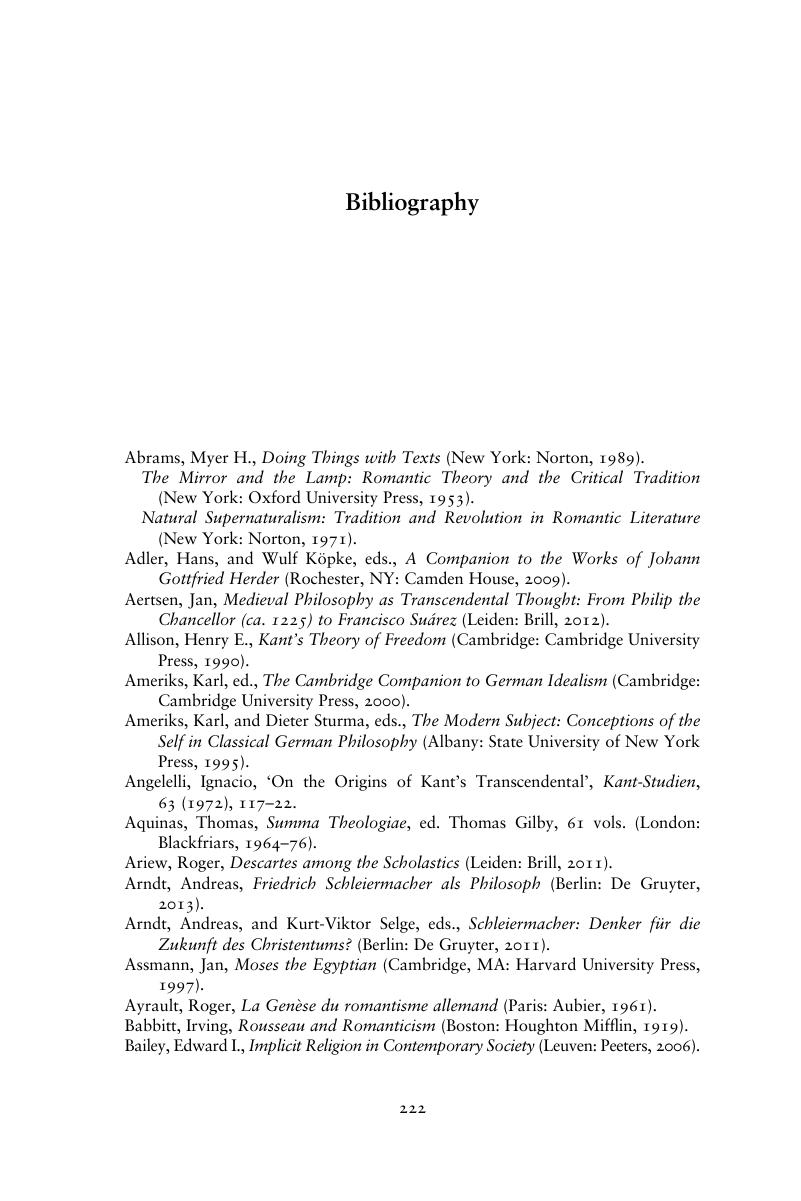 Romanticism and the Re-Invention of Modern Religion
Romanticism and the Re-Invention of Modern Religion Book contents
- Romanticism and the Re-Invention of Modern Religion
- Romanticism and the Re-Invention of Modern Religion
- Copyright page
- Epigraph
- Contents
- Acknowledgements
- Note on Translations
- Abbreviations
- Introduction
- Part I Romantic Religion
- Part II Give Me a Place to Stand
- Part III Romantic Religion
- Conclusion
- Bibliography
- Index
- References
Bibliography
Published online by Cambridge University Press: 14 January 2019
- Romanticism and the Re-Invention of Modern Religion
- Romanticism and the Re-Invention of Modern Religion
- Copyright page
- Epigraph
- Contents
- Acknowledgements
- Note on Translations
- Abbreviations
- Introduction
- Part I Romantic Religion
- Part II Give Me a Place to Stand
- Part III Romantic Religion
- Conclusion
- Bibliography
- Index
- References
Summary

- Type
- Chapter
- Information
- Romanticism and the Re-Invention of Modern ReligionThe Reconciliation of German Idealism and Platonic Realism, pp. 222 - 245Publisher: Cambridge University PressPrint publication year: 2019


